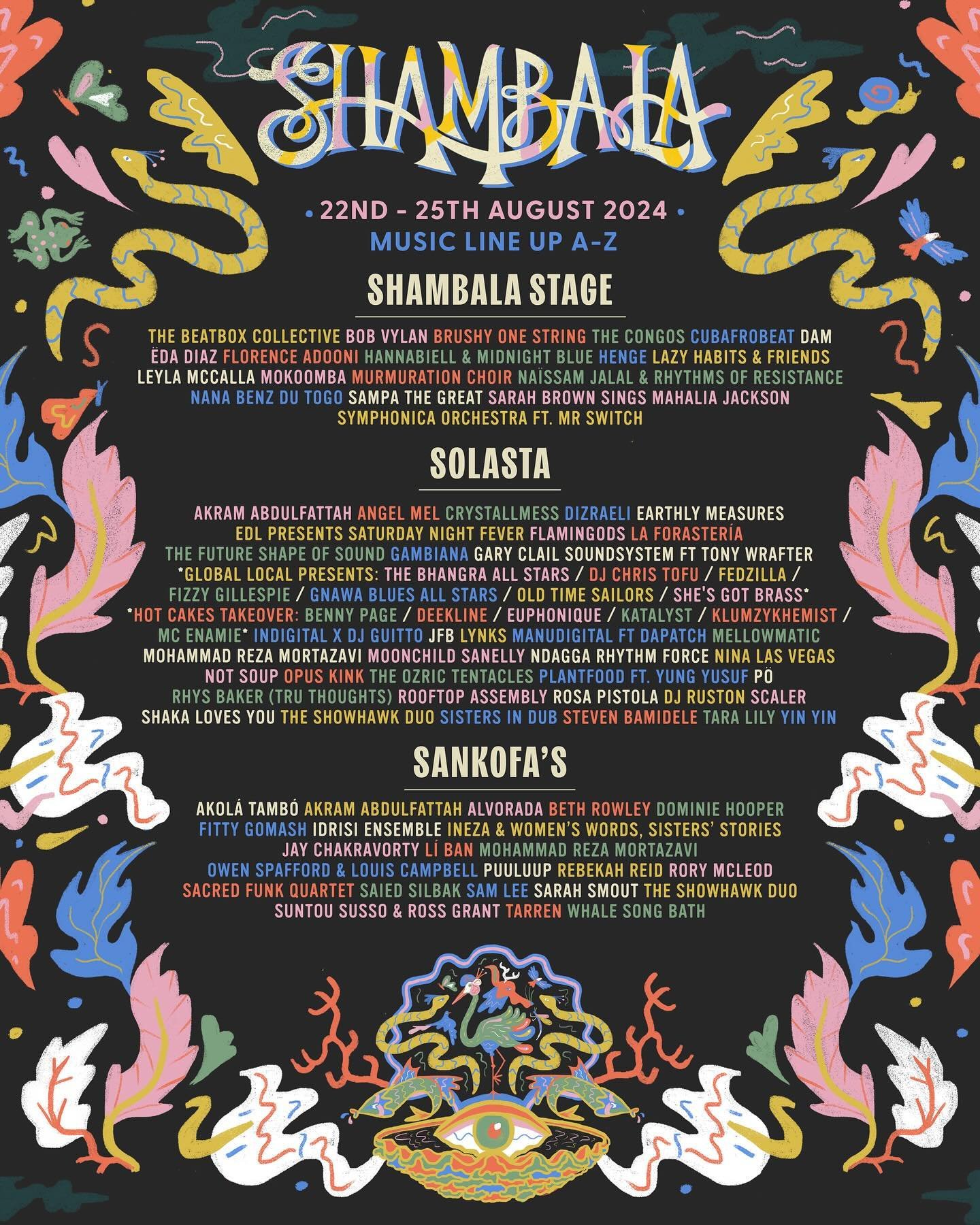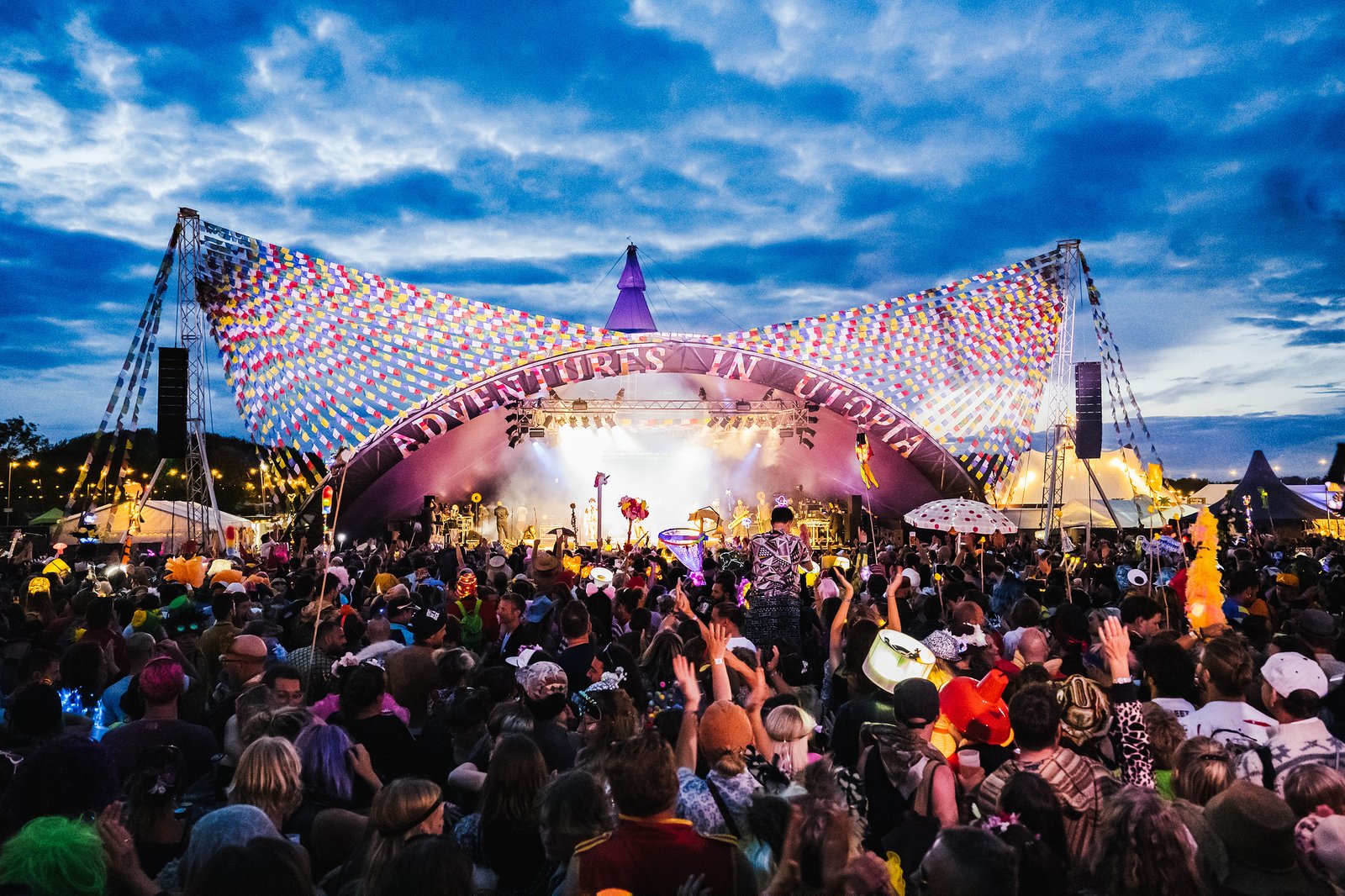It can’t be denied that tastes, moods, and interests differ, but equally inarguably, many would agree that the UK festival season saves the very best until last.
Shambala is a jewel in the scene’s ornately embellished crown. Its family-friendly atmosphere, visually enticing site, and broad range of music and workshops—along with some extra-special bells and whistles, including a themed dress-up day and joyful carnival procession that revellers embrace wholeheartedly—seem to offer something for everyone.
Held over the August bank holiday weekend, it marks a final fling for many looking to end the summer season in style.
As well as leading on environmental policy—shunning meat, dairy, and single-use plastic, and facilitating a guided cycle to the site from Bristol—Shambala has made a huge effort in recent years to increase the diversity of its lineup.
These efforts are paying off. Not only is there a significant proportion of female artists on the bill—remarkable in an industry still undergoing a reckoning with gender representation, despite women and activists shouting about male-heavy lineups for far too many years—but there’s also a wealth of exciting global acts to catch.
Roots reggae royalty The Congos, whose 1977 debut album was produced by the legendary Lee ‘Scratch’ Perry, top the bill, alongside Zimbabwe’s Mokoomba, who combine traditional rhythms with contemporary zamrock in a joyful, uplifting style that is sure to get Shambalans dancing.
Hailing from Ghana, Florence Adooni is known for her big voice and unique soul and high-life fusion; Suntou Susso has been thrilling crowds all summer with his infectious energy and wild kora playing, backed by a high-calibre band of horns, bass, and percussion; and Cubafrobeat sees the stars of two Yoruba musical traditions come together for an affectionate Havana-meets-Lagos soundclash.
Coupling their penchant for quality music picks with a social justice bent, the festival welcomes extraordinary Palestinian violinist Akram Abdulfattah. With Hindu, Turkish, and Persian influences, he also flirts with jazz, classical, and Western folk to produce a sound that is by turns sumptuous and transcendent.
Conservatoire-trained Saied Silbak, also hailing from Palestine, displays an intimate understanding of Arabic, Indian, and Turkish styles through his compositions for oud.
And DAM, on the scene since the 90s, were the first Palestinian hip-hop crew and among the first to rap in Arabic. Unafraid to tackle challenging topics, they’re sure to bring the fire to the main stage.
Elsewhere, flautist and vocalist Naissam Jalal, with her Rhythms of Resistance quintet, expresses her French and Arabic identities through a sound rooted in classical education but inspired by jazz, funk, hip-hop, and quarter tones; while the ‘haute-couture’ pop of singer-bassist Ëda Diaz is woven with traditional Latin rhythms such as bambuco viejo and vallenato, and celebrates beauty in chaos, as well as her Franco-Colombian heritage.
Flamingods’ blend of pleasingly fuzzy east-meets-west psychedelia is raised up a notch by their ability to switch instruments among members seemingly endlessly; Yin Yin’s latest sound is shaped to reflect Japan, while synths are augmented with the Chinese ghuzeng; and Gnawa Blues All Stars’ high spirits and hypnotic Moroccan rhythms never fail to hit the spot.
Finally, in a handful of picks from a smorgasbord of sound, the thoroughly entertaining Estonian duo Puuluup are wizards of trad, looping voice, talharpa—the country’s traditional bowed lyre—and electronic elements to mesmerising effect. They draw inspiration from “Vormsi nights, trams in November, junkies in love, criminals from Odessa, and Antonio Vivaldi.” Highly recommended.
The festival also offers some seriously heavyweight global beats.
Iranian composer Mohammad Reza Mortazavi explores classical and folk percussion on the tombak and daf in pursuit of the idea of a universal music in which something human connects in a profound way.
Akolá Tambó is the UK’s first bullerengue outfit. The Colombian dance tradition, characterised by its catchy rhythms, is recognised by UNESCO as Intangible Cultural Heritage of Humanity.
Self-proclaimed feminists Nana Benz du Togo bring ‘voodoo tradition and soul aimed for the dancefloor.’ The quintet fuse organic and electronic sounds to create music that celebrates nature and freedom.
Moving further into rave territory, Ndagga Rhythm Force is a collaboration between a Berlin techno pioneer and Senegalese musicians. ‘Coiled, clipped, percussive venom and thumping bass against soaring, open-throated spiritual singing’—it’s surely one not to be missed.
And assuming Moonchild Sanelly will be bringing her usual riotous energy and joie de vivre along with catchy hooks, heavy bass, and dance-worthy beats, she should be another on the must-see list.
Stepping into DJ territory—where all genres, cultures, and vibes are represented across the weekend—Italian DJ transfemminista IndekoRósa, who broke ground playing in a male-dominated arena, says raving is one of the few certainties in her life, so Shambalans are sure to be in safe hands here.
Fedzilla’s multilingual lyricism and Latin swagger is backed by bass-heavy hip-hop, dancehall, and reggaeton beats; Indian Man merges the music of his Punjabi roots with UK dub, garage, and jungle; and Arrival Sound brings a fresh perspective to the soundsystem with reggae and dub from Jamaica, Brazil, Nepal, Finland, Mexico, and India.
Shambala offers a world of musical immersion; it’s a weekend to take a breath and dive in to discover new hypnotic cultural offerings, transcendent sounds, and booty-shaking global beats of the highest order.
Tickets are still available! Buying via this THIS LINK support the Jam Jar, Bristol’s premier independent world music venue, in their ongoing efforts to ensure a sustainable future.



